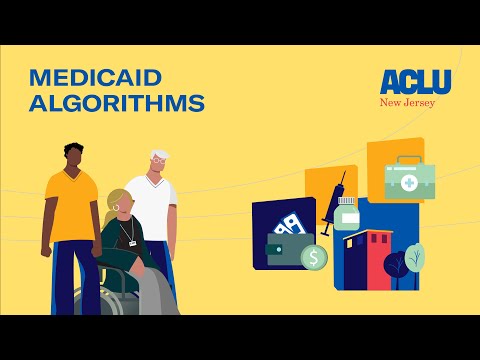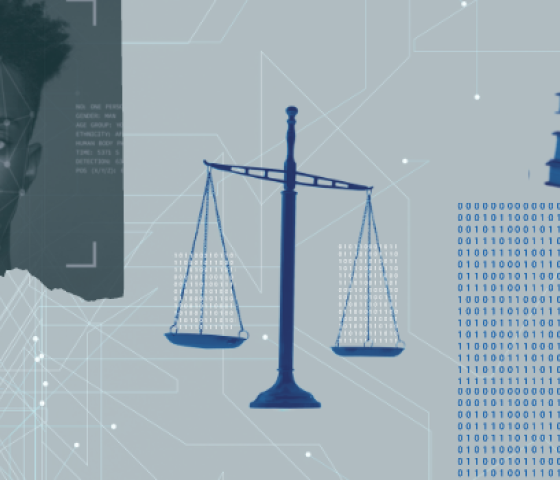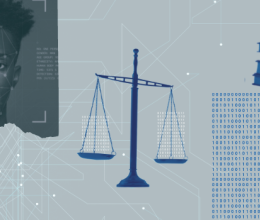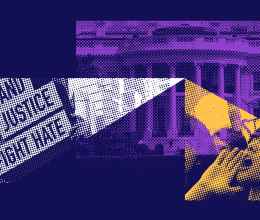When faced with important health care decisions, we often turn to doctors, service providers, and family and friends for counsel and guidance. But today, another actor plays a growing role in those decisions as the government and insurance companies increasingly lean on algorithms and automated decision systems to allocate the health care we need to live safe and independent lives.
If you receive medical care in New Jersey, particularly through government insurance programs like Medicaid, you have likely experienced algorithmic decision-making. These algorithms most often come in the form of needs assessments or budgeting tools that help insurers determine how much money can be spent on a person’s care or how many hours of in-home care services a person can receive.
Put more plainly, algorithms ration care by limiting the quantity of services that insurance providers are willing to fund for each patient. But when the formula gets it wrong and misrepresents someone’s needs, the results can be catastrophic.
The harms caused by erroneous health care algorithms
Elderly and disabled Medicaid recipients in Arkansas were forced into harrowing and life-threatening situations when a faulty algorithm cut nursing hours arbitrarily — and similar happened to adults with developmental disabilities in Idaho whose healthcare services were also cut arbitrarily by an algorithm. And because the organizations that develop and use these algorithms don’t share how they work, it can be difficult – if not impossible – for people to exercise their constitutionally protected right to due process and challenge the inadequate level of support, or to understand why the algorithm suggests one thing when their doctor recommends another. When the government unnecessarily withholds care, a person’s right to not be subjected to arbitrary government decision-making and to avoid segregation in institutions are both threatened, too.
Where are algorithms used in New Jersey's health care system?
The Automated Injustice Project is investigating how New Jerseyans are affected by algorithms like these. So far, we’ve focused on two situations where the state uses health care algorithms: service budgeting for adults with developmental disabilities and private-duty nursing for children receiving Medicaid.
The New Jersey government uses an algorithm – the New Jersey Comprehensive Assessment Tool (NJCAT) – to apportion necessary home and community-based services for adults with developmental disabilities, raising questions about how the system works, and if it honors patients’ rights. The state also uses algorithms to limit how much in-home private-duty nursing children with complex medical needs can receive.
"When the formula gets it wrong and misrepresents someone’s needs, the results can be catastrophic."
Thousands of New Jerseyans with developmental disabilities rely on care funded by Medicaid to live safely and independently in their community. This can cover a range of services, from in-home support providers to rehabilitative and educational services. These services are critical to ensuring the state meets its obligation to serve New Jerseyans with disabilities in their communities instead of in institutions.
How far does the state’s obligation go? That is in part determined by the NJCAT algorithm, which assigns a budget limiting the amount of care each person can access.
But the algorithmic formula the NJCAT uses to determine budgets for home and community-based services is kept hidden from the public – there’s no way of knowing if the tool fairly evaluates people’s needs and it’s nearly impossible to challenge any allocation of care that seems unfair. Although we are in the process of requesting information about this system through the Open Public Records Act, there is only so much that can be done in the face of government secrecy.
"Every person has the right to due process when the government makes important decisions affecting benefits, but Medicaid-related algorithms are a direct threat to that right without proper oversight."
Similar harms occur in the use of budgeting algorithms that determine how many hours of in-home private-duty nursing children with complex health needs can receive through Medicaid. Health insurers’ dependence on these algorithms can even result in ignoring the patient’s own doctor. Like the NJCAT, the formulas that power these tools are frequently shielded from public scrutiny and regarded as a trade secret. When Medicaid places near total reliance on opaque tools, the lack of transparency makes it extremely difficult, if not impossible, for patients to challenge inadequate allocations of care or sudden withholdings of services. Our Automated Injustice Project is in the process of trying to challenge the use of these unaccountable tools, including through litigation if necessary.
What we must ask for going forward
Every person has the right to due process when the government makes important decisions affecting benefits, but Medicaid-related algorithms are a direct threat to that right without proper oversight, transparency, and regulation.
When the government and private insurers use algorithms to allocate healthcare services, these systems raise serious moral questions: How can a patient challenge a decision that feels unfair? Does the algorithm treat people fairly? Should an algorithm be used for this purpose at all? Patients are owed answers – these systems shouldn’t be shielded from public scrutiny.
Going forward, the Automated Injustice Project will be investigating the systemic effects of government decisions – like those in healthcare – made by an algorithm, and we need your help. If you believe you’ve been allocated care by a government algorithm, share your story with us.









